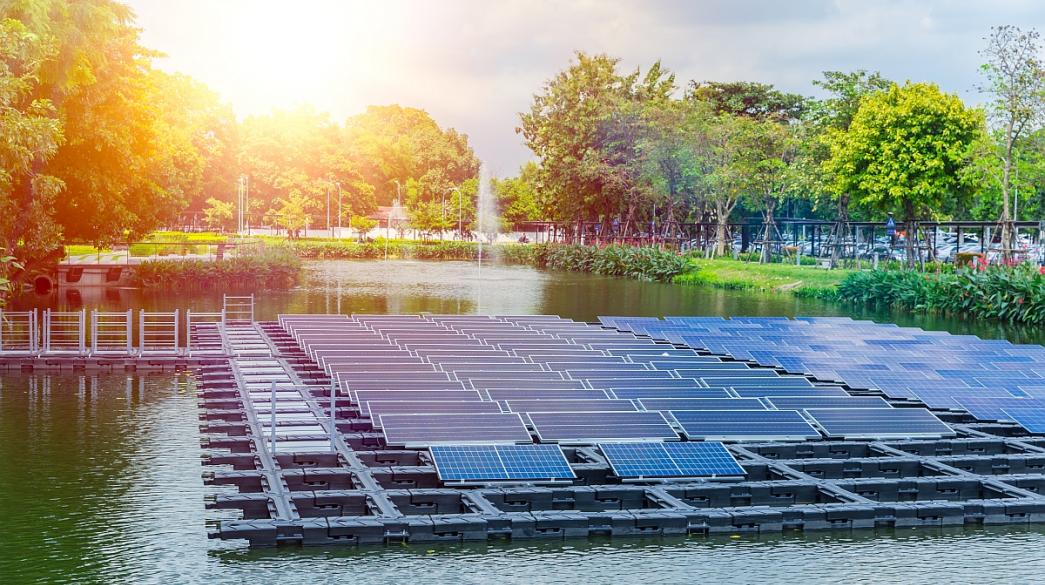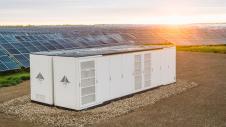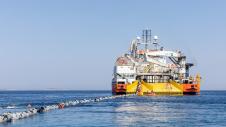Investment plans to introduce floating solar powered parks in Greek lakes are in danger of being blocked due to opposition to the projects from local authorities.
Initial protests have come from regional authorities in Western Macedonia regarding the floating photovoltaic park on the artificial lake of Polyphytos Kozani.
As reported by Business Daily, PPC Renewables is promoting a program for the installation of floating PV plants, with a total capacity of 50 MW, in the artificial lake of Polyphytos Kozani, while the Interphoton Investment group has also submitted an application to energy regulator RAE to install floating PV power plants 500 MW, also in Lake Polyphytou.
However, regional authorities in Western Macedonia met this week to express their opposition to what they described as “anarchic” development of RES projects in the region. The regional council decided to ask competent authorities to suspend the licensing and implementation of RES infrastructure until draft laws on spatial usage in the area are approved.
Local fishermen also oppose the floating green energy plans in the lake of Polyphytos, along with the municipal authorities of Kozani, Servia and Velvento. In fact, the three mayors, Lazaros Maloutas (Kozani), Christos Eleftheriou (Servia) and Manolis Stergiou (Velvento) sent a joint letter to the Governor of Western Macedonia where, among other things, they noted that they have not been officially informed about the plans and highlighted that:“It is not possible to plan such investments without prior environmental assessments, without taking measures for protection of the natural environment and without taking into account the factors that concern the inhabitants of the area and their needs, as well as the activities that develop in the lake. (fishing, leisure sports, tourism),” the letter said.
“It is certain that the situation requires thorough planning for the future of Lake Polyphytos with the contribution of all stakeholders in the region," it added. "We are facing an organized plan to exterminate our area," the Association of Professional Fishermen of Lake Polyphytou said in a statement.
"Our association has repeatedly raised the vital issue of the development of the lakeside area of Lake Polyphytos, as the decisive parameter for the development of the area. However, we could not have imagined that the state’s development planning would create conditions for harming the lake’s prospects and put a tombstone on the development of the region," the statement said, adding that "it must be understood that nothing can be done for us, without us.”
As reported by Business Daily, the lack of a regulatory framework in Greece is holding back investments in floating PV plants.
Germany’s BayWa, which has installed some of the largest floating PV plants in Europe, is one of the companies that are looking at the Greek market with interest. In comments to Business Daily, Philipp Kunze, responsible for the development of projects in Greece of BayWa, emphasizes that the company is examining very closely the opportunities in the Greek market.
Floating PV is a relatively new source of green energy. The first patents for this type of technology were filed in 2008 and have since been installed mainly in China, Japan and the United Kingdom. Instead of placing a solar panel on land, this method uses a floating system, to which the panels are attached, while the system is connected to the network by a submarine cable. The water under the panels keeps them cool, resulting in greater energy production and, at the same time, the facilities do not require valuable space.









